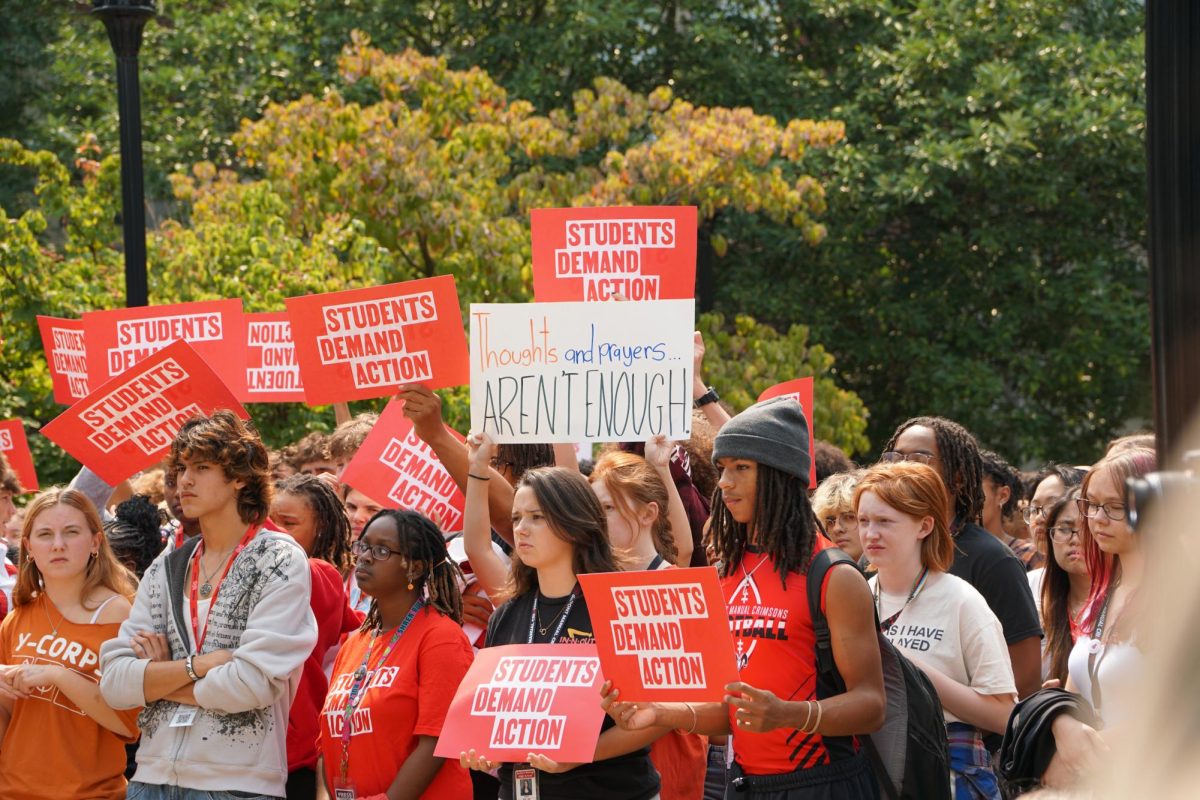On her seventh studio album, pop star Katy Perry’s attempts at exuberant, floor-filling dance-pop fall spectacularly flat. Muddled by vague lyrics and vapid production, rare glimmers of excitement on “143” are eclipsed countless times over by all the project leaves to be desired.
It wouldn’t be unreasonable for one to assume that an album from an artist known for her earnestly candy-coated camp, especially one named after the shorthand code for “I love you” of 1990s pager origin and Perry’s personal “angel number,” would serve up plenty of love, general emotion or at the very least fun. Unfortunately, one would be sorely mistaken — on the contrary, “143” is remarkably deficient in all of the above.
Although it utilizes traditional pop structures and sounds, dance music permeates “143”: “I’m His, He’s Mine,” featuring Doechii, samples Crystal Waters’ 1991 house classic “Gypsy Woman (She’s Homeless),” and the subgenre of piano house underlines “Lifetimes.” Inherently, dance music means escapism. It’s intended to move your body first and your brain second, if at all. But while escapism might be equated to mindlessness, mindlessness doesn’t have to mean forgettable or boring — those are two afflictions wholly unique to this record.
The instrumental production is static, varying little from track to track and drenched in commerciality. Paradoxically, it results in sparse beats that prove antithetical to the entire philosophy of dance music as they plod and drag and far overstay their welcome.
“I’m His, He’s Mine” warps its sample of the bulk of “Gypsy Woman,” including its melody and signature vocalized hook, into a neat, soulless bundle, complete with a pre-chorus of spoken-word chants (“I’m his dream, I’m his drug / I’m every woman he wants, so what?”) in identical structure. Even the short verse contributed by guest rapper Doechii, which offers some much-needed variety and vitality, as well as the made-up rhythmic delight that is “narcinissistic,” cannot make the track genuinely fun.
That is not to say that there aren’t any highlights whatsoever. The seamless transitions between most songs are a nice nod to live DJ mixes, a prominent part of dance music culture. And like Doechii, Kim Petras shines as a feature on “Gorgeous”: her additions are not just limited to a single verse but sprinkled throughout, and her vocal style is just similar enough to Perry’s to complement her without sounding like a carbon copy.
“Gorgeous” also proves that sometimes, it really is in the details; car engines rev in the background as Perry sings, “Know you wanna take a ride, ride” to provide a touch of elevation. Similar small quirks throughout the album bring back some of its cheek, like the robotic effect on Perry’s voice in “Artificial” featuring JID when she questions, “Why you so artificial?”
However, it’s clear that in the album’s apparent quest to optimize palatability for a commercial audience, the overall production fails to grasp what makes its influences and inspirations so satisfying. As a result, it brings nothing new or interesting to the table.
In the gaps where each individual element should be contributing to the collective sound, Perry’s awkward lyrics ring even hollower. Take the suggestive “Gimme Gimme,” featuring 21 Savage, for example: “Say the right thing, maybe you can be / Crawlin’ on me like a centipede,” sends goosebumps rising on one’s skin for all the wrong reasons.
“Gimme Gimme” isn’t an isolated incident, either; “Artificial” proves to be a worthy contender for the song with the most baffling line. Inexplicably, in a sea of songs about love in its various forms and stages, it is a wary confrontation of artificial intelligence and its ability to imitate human expression uncannily. In that case, a lyric as empty as “I’m just a prisoner in your prison” could easily be mistaken as desertion to the enemy.
Indeed, Perry’s “it’s not that deep” view of the record seems to have resonated — though in a way entirely wrong and contradictory to the envisaged “celebratory” energy. Before it was even released, the rollout of the lead singles was marred by a storm of controversy and criticism. Perhaps the cover art, which depicts Perry in the center of a blue-and-pink vortex, was an omen.
One prominent contributor to the first single and opening track “Woman’s World,” a proto-feminist anthem that comes off as a fond homage to the 2014 corporate girlboss, is music producer Lukasz Sebastian Gottwald. Gottwald, known professionally as Dr. Luke, was accused by fellow pop artist Kesha of sexual assault in, coincidentally enough, 2014. Though the two have since reached a settlement, when word of Gottwald’s involvement in the song came out, the ensuing backlash was swift.
The accompanying music video, which includes Perry as a bikini-clad Rosie the Riveter among other controversial shots, was also panned for seeming to appeal to the male gaze and further compounding the song’s hypocritical messaging. (Perry later claimed that the video was satire.)
In some ways, the response of outrage may be indicative of the music itself. It’s very likely that if the quality of his work on 10 of the 11 tracks on “143” outshone the taint on his reputation, Perry would have faced a much kinder reception. After all, Gottwald has produced no small number of hits throughout his career. Besides working with Perry on smashes like “Dark Horse” featuring Juicy J and “Roar” for her 2013 album Prism, he’s seen success in the years following the initial allegations: he was the sole producer on Doja Cat’s “Say So,” featuring SZA and released in 2019, which peaked at number 1 on the Billboard Hot 100.
To make matters worse, the music video for “Lifetimes” prompted ongoing investigations into environmental infringement from the government of the Balearic Islands, Spain, which alleged that the shooting took place on protected dunes without prior permission. Though the investigation is still in its early stages, the initial reports drew attention away from the single itself and came to represent another blunder in the album’s rollout.
Taken as a whole, “143” feels less like a major pop artist’s first full-fledged project in four years and more like one 30-something-minute-long track that repeatedly tries and fails to emulate the sounds of bygone eras. It aims at but misses its target of true sincerity, or even wholehearted kitsch or “so bad it’s good” territory on the other end of the spectrum, instead landing in an awkward, liminal realm of grating plainness. Perry may have intended the album to embody the “freedom to be yourself: freedom to be sweaty, freedom to dance with a stranger,” but the end result cannot escape the chains of cliché and unoriginality.
Rating: 1.25/5 stars
This story was originally published on The Epic on October 7, 2024.






































